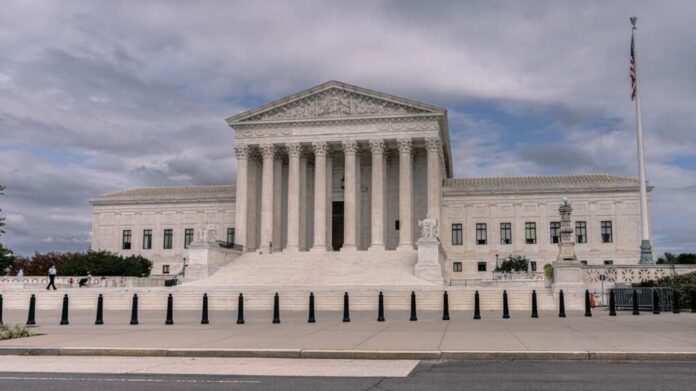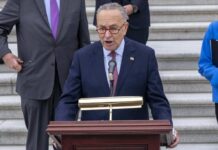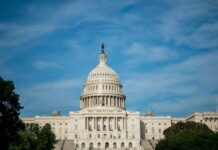
A landmark ruling from two decades ago could potentially be used by former President Donald Trump’s team in order for the felony charges filed against him in Manhattan to be downgraded to misdemeanors.
In late March, Trump became the first U.S. President in history to face criminal charges after Manhattan District Attorney Alvin Bragg filed 34 felony counts of falsifying business records against him. The charges were in connection to a hush money payment probe, where Trump allegedly made a payment to adult film star Stormy Daniels ahead of the 2016 presidential election in order to keep their affair secret. Daniels claimed that her affair with Trump occurred in 2006 which Trump has denied. Trump pleaded not guilty to the charges.
Bragg originally charged Trump with 34 misdemeanors but those were brought up to felonies as falsifying business records is a felony in New York when committed along with another crime. Trump in the case is accused of violating election law by hiding the payment apart from being charged with falsifying business records.
On Friday, former federal prosecutor and elected state attorney Michael McAuliffe told Newsweek that it is possible for Donald Trump’s attorneys to “challenge the legal sufficiency of the indictment.” This is because in 2000 the Supreme Court had ruled that a criminal sentence cannot be later enhanced beyond what was originally in the indictment.
This ruling came from the case Apprendi v. New Jersey. Charles Apprendi Jr. who had opened fire into the home of an African-American family was originally charged under New Jersey law for possession of a firearm for unlawful purposes. The shooter also made a statement which was later retracted about not wanting the family in the neighborhood because of their race. However, because the indictment did not refer to the state’s hate crime statute, the prosecutor’s motion to enhance the sentence was not accepted as the Supreme Court ruled that any fact which could increase the penalty of a crime needed to be proved beyond any unreasonable doubt.
















